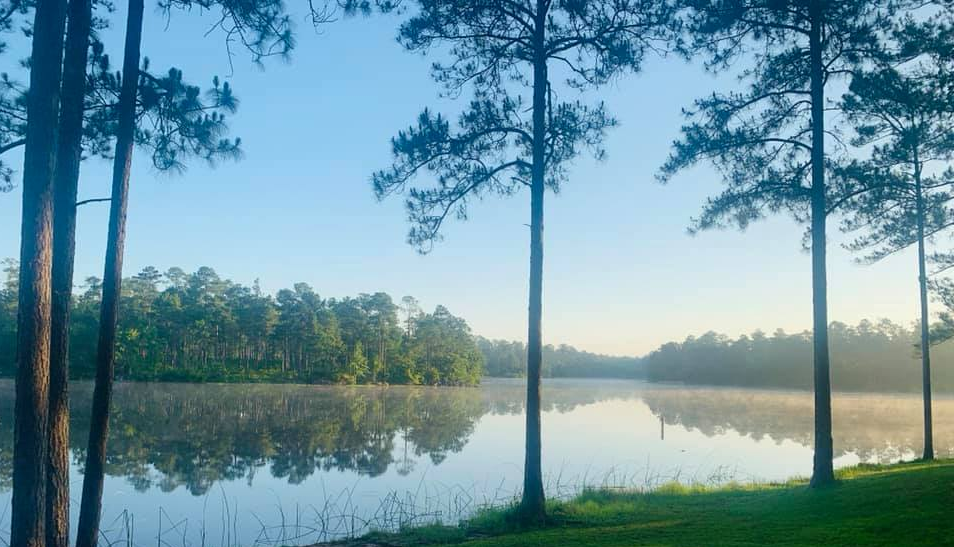
History
GPS Navigational Issues
Due to the inaccuracy of some GPS/navigation systems, please double check your route to the park or call the park office for turn by turn directions at 850-983-5363 or 850-712-0193.
Present day Blackwater River may not appear to have changed much over time; however, a diverse history reveals the struggle for cultural livelihoods over the centuries along the rich bounty of natural resources surrounding the river.
In the 1700s, Creek Indian tribes inhabited lands from Pensacola to Apalachicola. The Blackwater River was a boundary line between hunting grounds of the upper Creek tribes, who occupied lands west of the river, and the lower Creek tribes, who occupied lands to the east. A significant supply and trading trail ran along the Blackwater River connecting tribes from Georgia and Apalachicola. Many trails at different time periods were established, merged or abandoned through the present-day state forest leading westward to Pensacola, where Spanish occupations were taking root. Blackwater inhabitants would for a short time avoid tensions with European settlers until the 1800s.

The present-day Blackwater River State Forest and surrounding towns of Milton, Bagdad and Holt would become an industrial center of wealth. Early settlers established lumber mills, grist mills, brickyards and turpentine stills. As railroads brought more settlers into the state and fueled industry, the Seminole wars to the east were beginning to raise tensions around the river.
During 1837, many tragic conflicts would occur between displaced Creek tribes and early settlers in the western panhandle region, from plantation raids by the Creeks to the kidnapping and imprisonment of a Creek family by settlers at a Blackwater River lumber mill.
By 1840, hundreds of Native Americans were deported west by train and many more slain in conflict. One Creek establishment along the trails of the river grew to prosper with the new Florida pioneers. An outpost called Otahite, meaning “damp place,” provided postal, travel, trade and communication services.
In 1860, 53% of Florida’s yellow pine lumber was produced from Santa Rosa County. The lumber industry would slow dramatically during the Civil War after Colonel Beard led the scorched earth policy that would destroy mills, lumber, blacksmith shops and anything the Union troops could use. After the war, the communities rebuilt, but the natural resource was becoming depleted with only 20% of the state’s virgin timber remaining.
By 1939, the last virgin pine in what is present-day Blackwater River State Forest was cut in Bagdad and the tract was purchased by the federal government. The state of Florida managed the land under a license agreement until obtaining the deed in 1955. Remnants of the cultural and industrial past were overtaken with wiregrass and turkey oak, with only catfaces and turpentine pots to remember it by.
In 1968, Blackwater River State Park was opened to the public with 360 acres. In 1981, it acquired 290 additional acres from the Division of Forestry. Today, the park provides many recreational opportunities along the sandy banks of the old Blackwater River.